We may not have the course you’re looking for. If you enquire or give us a call on 01344203999 and speak to our training experts, we may still be able to help with your training requirements.
We ensure quality, budget-alignment, and timely delivery by our expert instructors.

In the fast-paced world of Cyber Security, being one step ahead is more than an advantage; it's a necessity. Imagine if there was a craft that helps you outsmart cyber threats and identify vulnerabilities before malicious hackers pounce on them. Wonder no more, and welcome to the world of Ethical Hacking! But where do you start as you plan to acquire this cutting-edge skill? We are here to remedy that with a curated list of the Top 13 Ethical Hacking Books you must read. So, let's dive in and ensure your success as a digital guardian of the future.
Table of Contents
1) What is Ethical Hacking?
2) Best Ethical Hacking Books
a) Ethical Hacking: A Hands-On Introduction to Breaking in
b) Hacking: A Beginners' Guide to Computer Hacking, Basic Security, and Penetration Testing
c) Hacking: The Art of Exploitation
d) Practical IoT Hacking: The Definitive Guide to Attacking the Internet of Things
e) Black Hat Python: Python Programming for Hackers and Pentesters
f) CEH v11 Certified Ethical Hacker Study Guide by Ric Messier
g) The Hacker Playbook 3: Practical Guide to Penetration Testing
h) Practical Malware Analysis: The Hands-On Guide to Dissecting Malicious Software
i) The Web Application Hacker's Handbook: Finding and Exploiting Security Flaws
j) Violent Python: A Cookbook for Hackers, Forensic Analysts, Penetration Testers and Security Engineers
3) Conclusion
What is Ethical Hacking?
Before delving into our selection of the top 10 Ethical Hacking Books, let's first establish a comprehensive understanding of Ethical Hacking and its critical significance in today's digital landscape. Ethical Hacking, also called Penetration Testing or White-Hat Hacking, involves the authorised and legal probing of computer systems, networks, and applications to identify vulnerabilities that malicious hackers could exploit. The key objective of Ethical Hacking is to proactively assess and strengthen the security posture of organisations, thereby mitigating potential cyber threats and safeguarding sensitive data from unauthorised access, data manipulation, or cyber theft.
Ethical Hackers, equipped with the same tools, techniques, and methodologies as their malicious counterparts, operate with integrity and adhere to strict ethical guidelines. By simulating real-world cyber-attacks, Ethical Hackers help organisations identify and find security weaknesses before cybercriminals can exploit them for nefarious purposes. Their efforts play a key role in enhancing Cybersecurity resilience, fostering trust in digital technologies, and safeguarding individuals, businesses, and critical infrastructures from the ever-evolving landscape of cyber threats. A well-structured Advanced Ethical Hacking Guide can provide deeper insights into these methodologies and their impact on modern security frameworks.
Best Ethical Hacking Books
Now that we have a basic understanding of Ethical Hacking let's explore some of the Best Ethical Hacking Books available in this field:
1) Ethical Hacking: A Hands-On Introduction to Breaking in
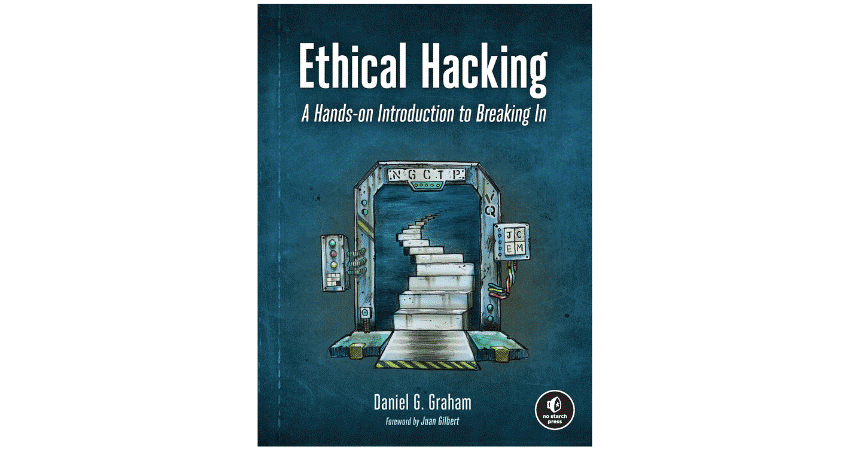
This comprehensive guide provides a hands-on introduction to the world of Ethical Hacking, encompassing a wide array of essential topics, techniques, and methodologies employed by Cybersecurity professionals. Authored by seasoned experts in the field, the book offers practical insights, real-world examples, and step-by-step tutorials.
From Penetration Testing and vulnerability assessment to network security and cryptography, each chapter offers valuable insights that can empower both novice enthusiasts and seasoned practitioners to enhance their Cybersecurity prowess.
2) Hacking: A Beginners' Guide to Computer Hacking, Basic Security, And Penetration Testing

Perfect for individuals embarking on their journey into Ethical Hacking, this beginner-friendly guide demystifies the fundamentals of Computer Hacking, basic security principles, and Penetration Testing methodologies. Written in a clear and accessible manner, the book serves as a comprehensive primer for readers seeking to grasp the foundational concepts of Ethical Hacking.
It also helps develop a solid understanding of the principles and practices employed by Cybersecurity professionals worldwide. With practical examples, hands-on exercises, and expert insights, this book lays a solid foundation for aspiring Ethical Hackers to hone their skills and embark on a rewarding career in Cybersecurity.
3) Hacking: The Art of Exploitation

Regarded as a seminal work in Ethical Hacking, this book delves deep into the art and science of exploitation, providing readers with a comprehensive understanding of advanced hacking techniques and methodologies.
From buffer overflows and shellcode development to reverse engineering and exploit writing, the author explores various topics with unparalleled depth and clarity. By dissecting real-world exploits and demonstrating their underlying principles, this book empowers readers to think like hackers, identify vulnerabilities, and develop effective countermeasures to fortify their systems against cyber threats.
Learn how to respond to Cyber threats effectively with our Cyber Security Awareness Course – Sign up now!
4) Practical IoT Hacking: The Definitive Guide to Attacking the Internet of Things

As the Internet of Things (IoT) continues to increase, so do the security challenges associated with interconnected devices and networks. This definitive guide to IoT Hacking equips readers with the knowledge and tools necessary to assess and exploit vulnerabilities within IoT ecosystems.
The book covers a wide range of IoT platforms and protocols, offering practical insights and hands-on techniques for identifying, exploiting, and mitigating security risks. With real-world case studies and practical exercises, this book serves as an indispensable resource for Cybersecurity professionals tasked with securing IoT deployments and safeguarding critical infrastructure from emerging threats.
5) Black Hat Python: Python Programming for Hackers and Pentesters
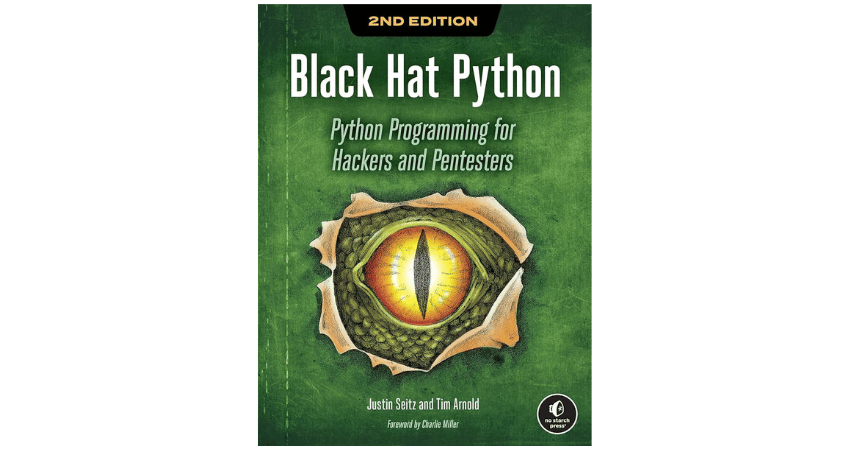
Python has emerged as the scripting language of choice for Ethical Hackers and Penetration Testers due to its versatility, simplicity, and extensive libraries. This highly acclaimed book, the author explores the myriad ways in which Python can be leveraged for offensive security purposes, ranging from network surveillance and exploit development to malware analysis and post-exploitation techniques.
With hands-on examples, practical exercises, and real-world case studies, the book provides readers with a comprehensive toolkit for conducting sophisticated cyber-attacks and strengthening their defensive capabilities. Whether you're a novice Python programmer or an experienced hacker, this book offers valuable insights that can help elevate your Cybersecurity skills to new heights.
Ready to take on your ethical hacker interview? Our Ethical Hacker Interview Questions and Answers will guide you to success—start practicing now!
6) CEH v11 Certified Ethical Hacker Study Guide

For aspiring Cybersecurity professionals seeking to attain industry-recognised certifications, the CEH v11 Certified Ethical Hacker Study Guide serves as an indispensable resource for exam preparation and skill enhancement. Aligned with the latest CEH v11 exam objectives, this comprehensive study guide covers a wide range of Ethical Hacking topics, including reconnaissance, scanning, enumeration, exploitation, and post-exploitation techniques.
With in-depth explanations, practical examples, and hands-on labs, the book provides aspiring CEH candidates with the education, skills, and confidence needed to excel on the exam and succeed in the dynamic field of Cybersecurity. Whether pursuing certification or exploring the Difference Between OSCP and CEH to determine the right path, this book offers invaluable insights that can accelerate your professional growth and elevate your Cybersecurity expertise.
7) The Hacker Playbook 3: Practical Guide to Penetration Testing
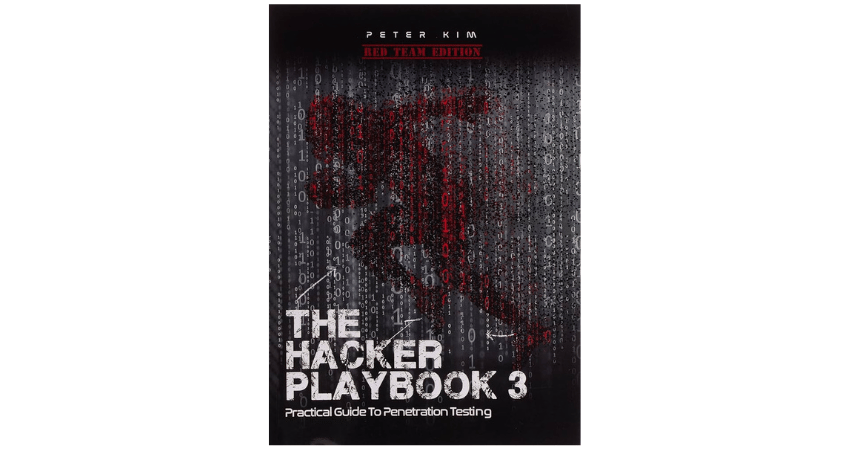
Written by renowned Cybersecurity expert Peter Kim, The Hacker Playbook 3 offers a pragmatic and hands-on approach to Penetration Testing, providing readers with a comprehensive toolkit for assessing and strengthening the security posture of organisations.
From initial survey and vulnerability scanning to exploitation and post-exploitation activities, the book covers the entire Penetration Testing lifecycle in detail. It offers practical tips, techniques, and methodologies for conducting effective security assessments. With real-world scenarios, case studies, and actionable insights, this book equips aspiring Penetration Testers with the education and skills needed to navigate the complex Cyber Security landscape.
8) Practical Malware Analysis: The Hands-On Guide to Dissecting Malicious Software
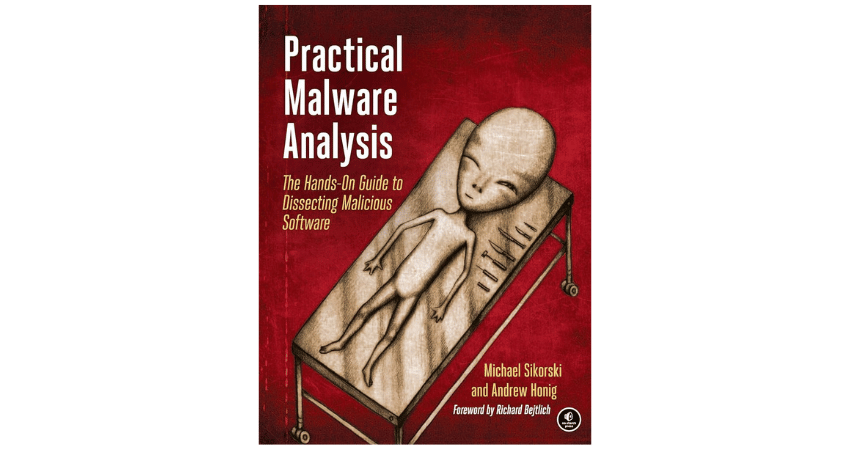
Malware analysis is a key skill for Cybersecurity professionals tasked with combating the proliferation of malicious software across digital ecosystems. This hands-on guide to malware analysis offers a comprehensive familiarisation of the principles, techniques, and tools used to dissect and analyse malicious code. The book covers various methodologies and approaches for identifying, classifying, and mitigating malware threats, from static and dynamic analysis to sandboxing and code emulation.
With practical exercises, real-world case studies, and expert insights, this book provides readers with the knowledge and skills needed to unravel the complexities of malware and develop effective countermeasures to protect against evolving cyber threats.
9) The Web Application Hacker's Handbook: Finding and Exploiting Security Flaws
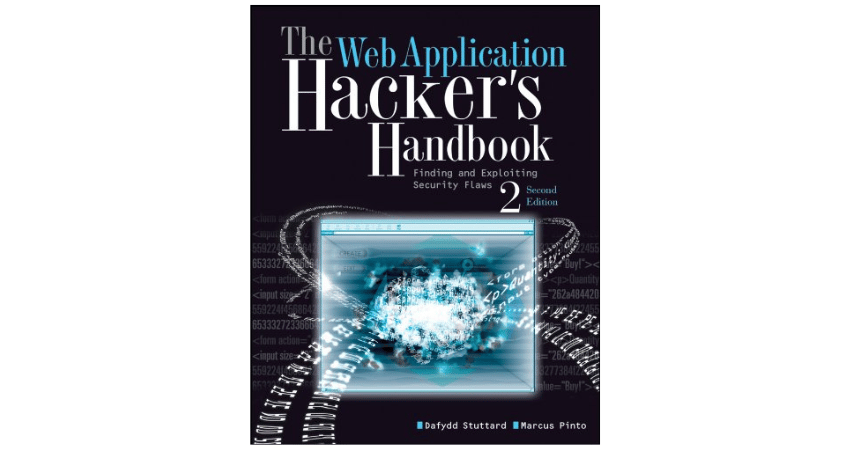
Web applications represent a prime target for cyber-attacks due to their ubiquity, complexity, and interconnected nature. This authoritative handbook on web application security offers a comprehensive exploration of common vulnerabilities, attack vectors, and exploitation techniques employed by malicious hackers.
From injection attacks and Cross-Site Scripting (XSS) to authentication bypasses and session hijacking, the book provides readers with a deep understanding of web application security principles. With practical examples, real-world case studies, and expert insights, this book serves as a key resource for Cybersecurity professionals tasked with securing web applications and safeguarding sensitive data from online threats.
10) Violent Python: A Cookbook for Hackers, Forensic Analysts, Penetration Testers and Security Engineers

Violent Python is a book that teaches you how to use Python to perform offensive computing tasks, such as https://www.theknowledgeacademy.com/blog/what-is-hacking/, forensics, and penetration testing. The book shows you how to write Python scripts that can automate large-scale network attacks, extract metadata from files, investigate forensic artifacts, and more .
The book is aimed at readers who have some basic knowledge of Python and want to learn how to use it for Ethical Hacking and security engineering. The book is written by TJ O'Connor, a former US Army intelligence officer and a security consultant.
Learn the Metasploit Framework with our Mastering Metasploit Framework Course – Join today!
11) Gray Hat Hacking: The Ethical Hacker's Handbook
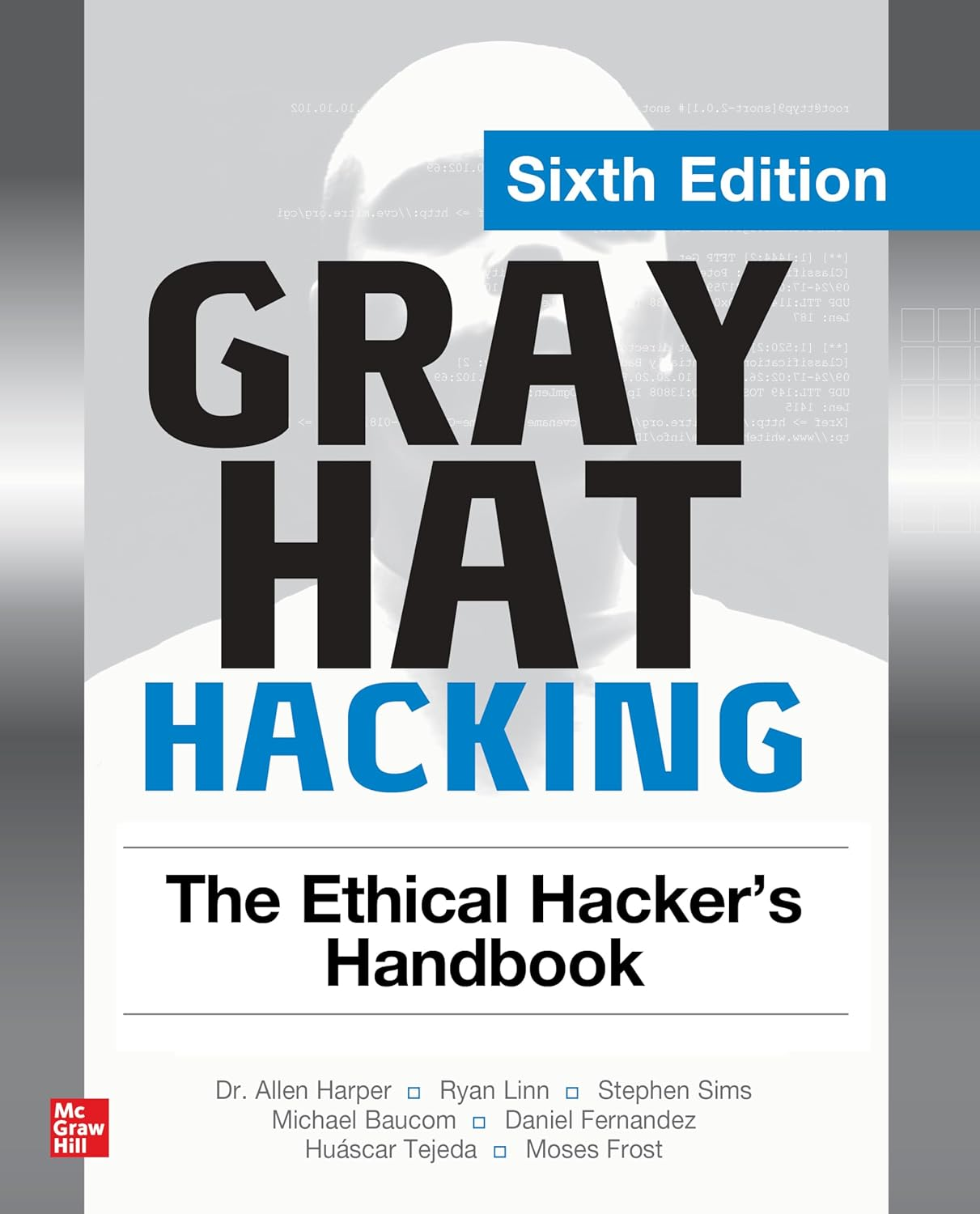
This book provides step-by-step methods to fortify computer networks using effective, Ethical Hacking techniques. It features actionable planning and analysis methods for identifying a hacker’s devious weapons, skills, and tactics and combating them using field-tested remedies, testing labs, and case studies.
You will get complete coverage of penetration testing, malware analysis, and reverse engineering techniques.
12) Penetration Testing: A Hands-On Introduction to Hacking
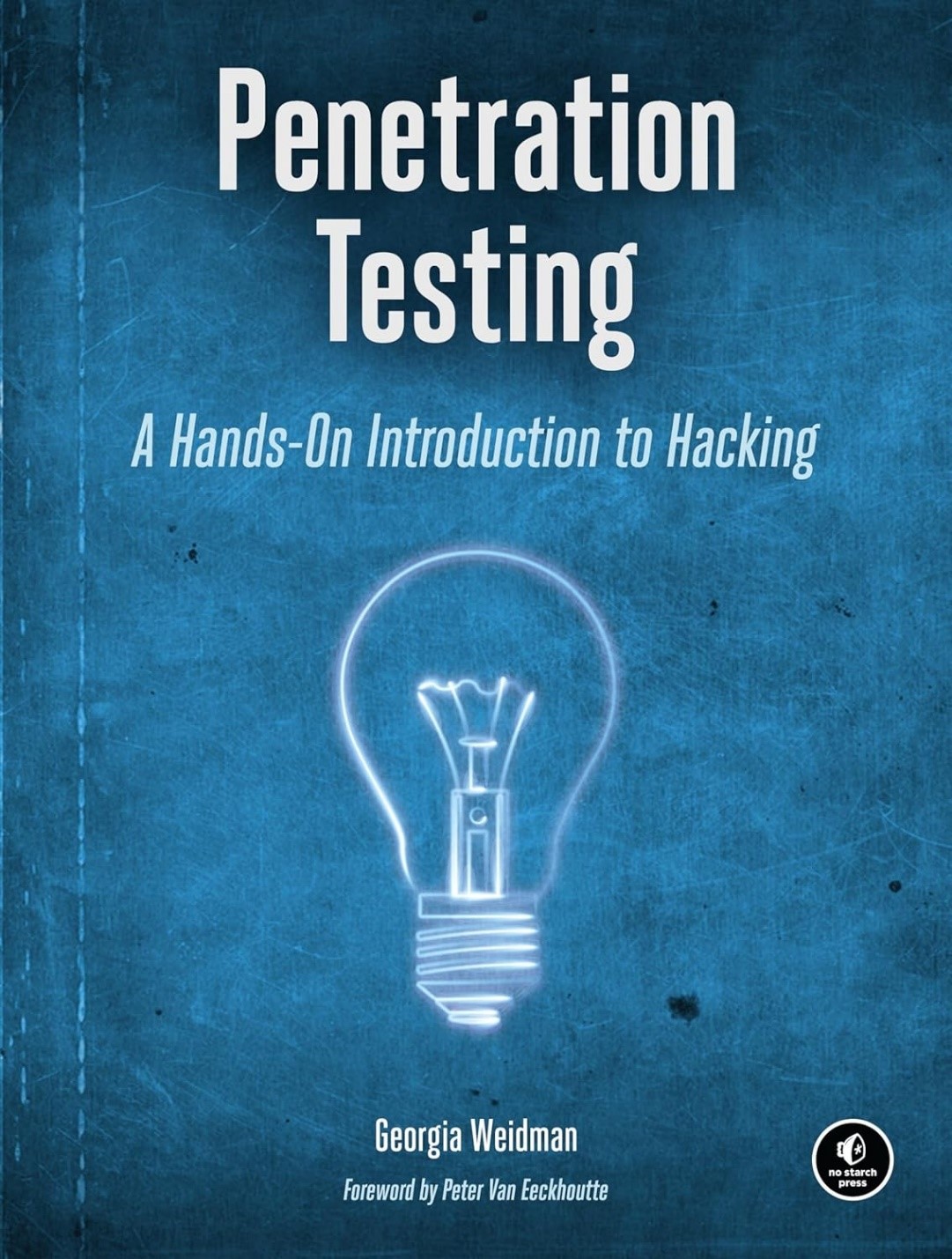
This Cyber Security book provides insight into penetration testing, which involves discovering security weaknesses in Operating Systems, networks, and applications. This book focuses on the core skills and techniques a penetration tester requires. Here, you'll be acquainted with the prime stages of an actual assessment, which includes gathering information, unravelling vulnerabilities, gaining access to networks, and so on.
In addition to the above, you will learn to crack passwords, bypass antivirus software, automate attacks, and use the Metasploit framework for launching exploits and writing your Metasploit modules.
13) Mastering Hacking (The Art of Information Gathering & Scanning)
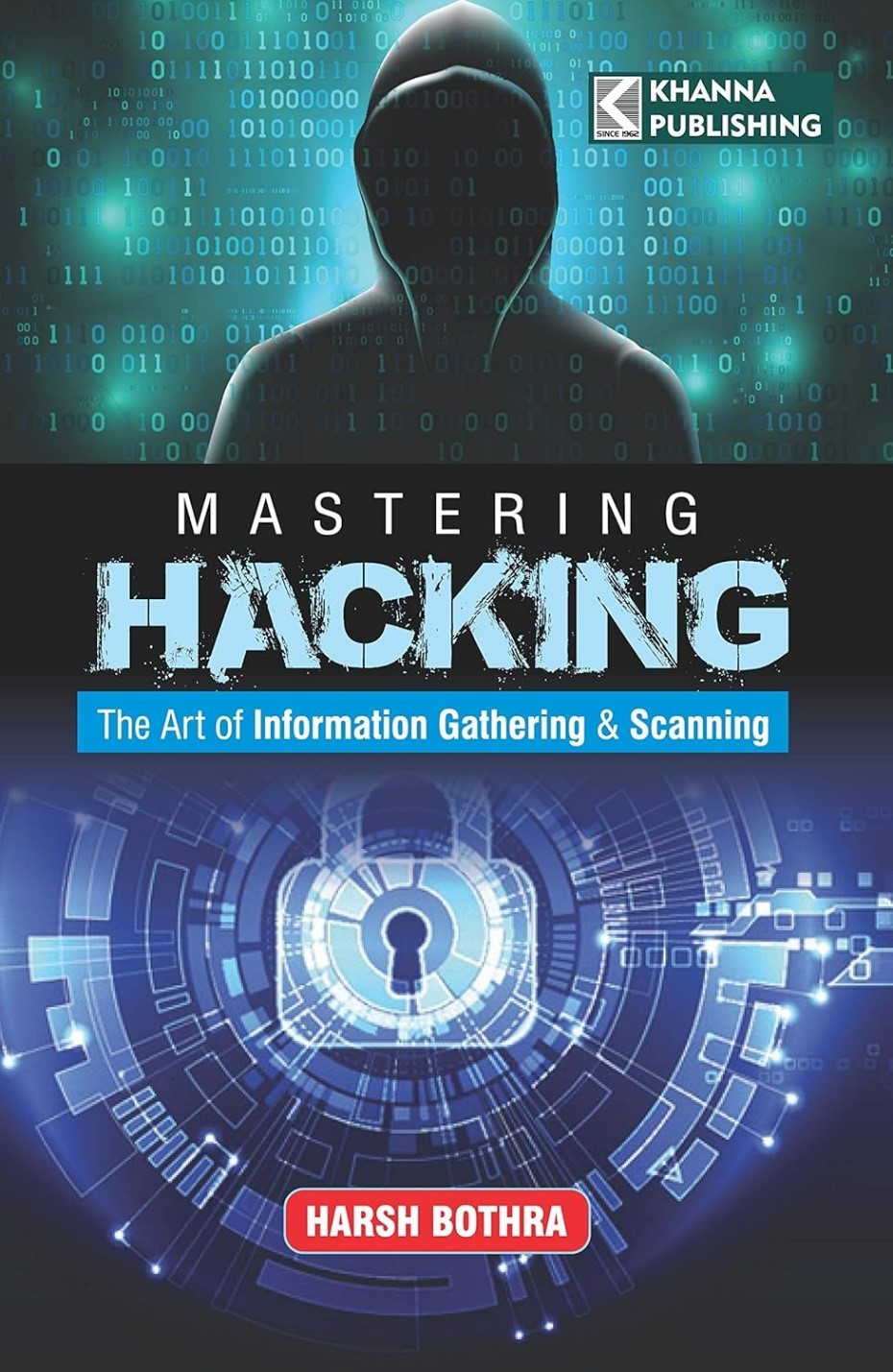
This book provides a simplified approach to hacking aimed at both technical and non-technical readers. You will learn about the latest tools and techniques of the modern Penetration Testing Framework, discover vulnerabilities, patch vulnerabilities, and protect assets over the network.
The book also includes in-depth, real-life applications of various Hacking techniques and acts as a handbook for your concrete step in information security.
Conclusion
As you embark on your journey into the world of Ethical Hacking, remember that knowledge is your most powerful tool. The Ethical Hacking Books we’ve highlighted are not just resources; they’re your gateway to becoming a proficient and Ethical Hacker. By diving into these texts, you’ll gain the skills and insights needed to protect digital landscapes and outsmart cyber threats.
Explore the intricacies of Ethical Hacking with our Ethical Hacking Professional Training.
Frequently Asked Questions
Is There a Career Pathway in Ethical Hacking?

The path to finding work as an Ethical Hacker almost invariably involves many years as a member of a security team providing defensive security services. Assignment to an elite offensive team is most commonly a progression through the department's ranks.
What Is the Golden Rule of Hacking?

The golden rule of Ethical Hacking is: Don’t hack or test anything you don’t own or have permission to hack or test. This rule is essential for remaining ethical and can keep you out of big legal trouble!
What are the Other Resources and Offers Provided by The Knowledge Academy?

The Knowledge Academy takes global learning to new heights, offering over 3,000 online courses across 490+ locations in 190+ countries. This expansive reach ensures accessibility and convenience for learners worldwide.
Alongside our diverse Online Course Catalogue, encompassing 19 major categories, we go the extra mile by providing a plethora of free educational Online Resources like News updates, Blogs, videos, webinars, and interview questions. Tailoring learning experiences further, professionals can maximise value with customisable Course Bundles of TKA.
What is Knowledge Pass, and how does it work?

The Knowledge Academy’s Knowledge Pass, a prepaid voucher, adds another layer of flexibility, allowing course bookings over a 12-month period. Join us on a journey where education knows no bounds.
What are related Ethical Hacking courses and blogs provided by The Knowledge Academy?

The Knowledge Academy offers various Ethical Hacking Courses including Ethical Hacking Professional, Metasploit Framework Course, etc. These courses cater to different skill levels, providing comprehensive insights into Ethical Hacker Roles and Responsibilities.
Our IT Security & Data Protection resources cover a range of topics related to Ethical Hacking, offering valuable resources, best practices, and industry insights. Whether you are a beginner or looking to advance your Hacking skills, The Knowledge Academy's diverse courses and informative blogs have you covered.
Upcoming IT Security & Data Protection Resources Batches & Dates
Date
 Ethical Hacking Professional
Ethical Hacking Professional
Thu 1st May 2025
Thu 4th Sep 2025
Thu 20th Nov 2025






 Top Rated Course
Top Rated Course



 If you wish to make any changes to your course, please
If you wish to make any changes to your course, please


